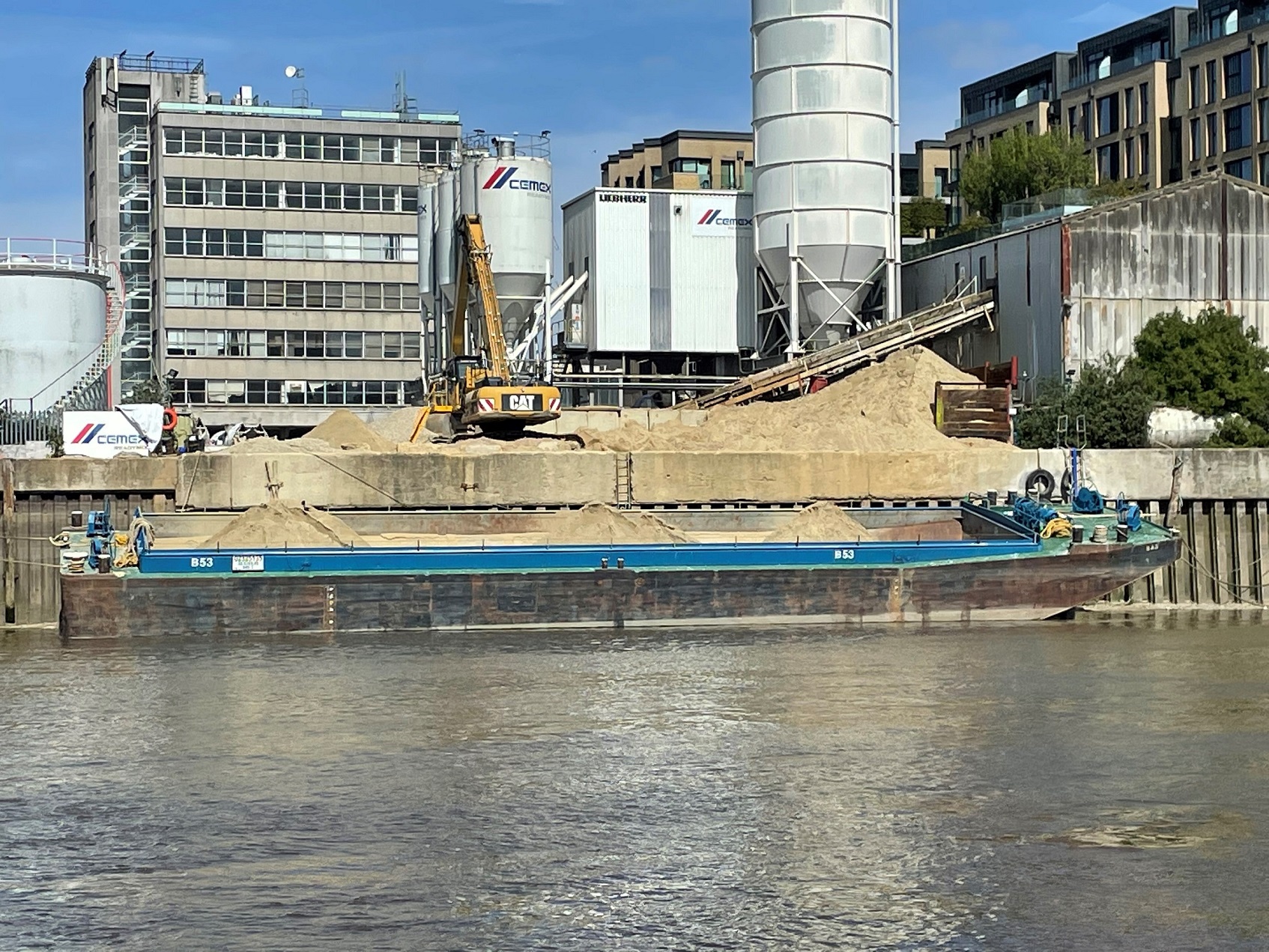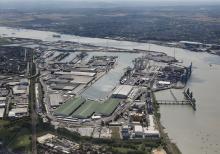
The contract will see Walsh running barges on the River Thames to transport aggregates from CEMEX’s wharf at Dagenham, east London, to its readymix plant at Fulham, west London, with a 75% CO₂ saving compared to road transport. It further demonstrates CEMEX’s Future In Action commitment to net-zero CO₂, with an equivalent saving of more than 5,000 lorry movements.
Marine aggregates are processed at Dagenham, and the site also receives limestone by sea from the company’s Raynes Quarry in North Wales. Both materials are used in the Fulham plant to produce concrete that is supplied into the London market.
This contract will transport CEMEX materials on the Thames with one barge service completed every day. The use of a river barge to transport these materials takes trucks off the road, helping to ease congestion and reduce emissions; each loaded barge carries 400 tonnes which saves the equivalent of 20 HGV lorries travelling across the centre of London.
This contract with Walsh has been agreed as CEMEX prepares to invest in its Fulham Readymix site to ensure it can continue to meet the demand for construction materials in the capital into the long term. Opportunities to develop the partnership with Walsh further, including identifying additional flows, are being explored.
Dave Hart, CEMEX Supply Chain director for UK and France, said: “We are pleased to have agreed this new partnership with Walsh, who are perfectly placed to support us with the supply of materials into our Fulham site. We are always looking for ways to enhance the sustainability of our logistics operation, and the use of river freight supports our drive to be a responsible business by reducing congestion and air emissions in our great capital city.”
Lex Russell, Materials director for CEMEX UK, added: “Our Fulham readymix plant is a vital part of our London operation, so it is important that it receives a consistent and reliable flow of materials from our Dagenham Wharf. Using the Thames provides a congestion-free, sustainable route through the centre of London and maximising the opportunities for river freight was encouraged in the Greater London Authority’s strategic plan for the city.”
Joe Gifford, managing director of Walsh, said: “This is a win-win, not just for CEMEX and Walsh, but also for freight transport, construction and the environment. Moving essential materials via the River Thames has numerous advantages – reducing lorry miles, less congestion, lower emissions – while helping to meet London’s demand for materials for redevelopment and regeneration. We’re proud to be working with the team at CEMEX to deliver that.”









